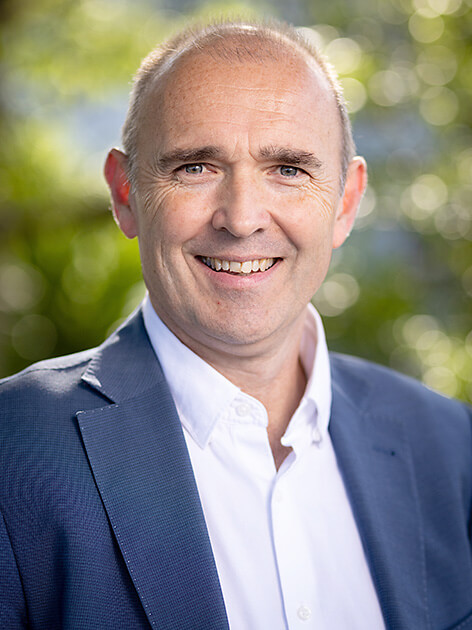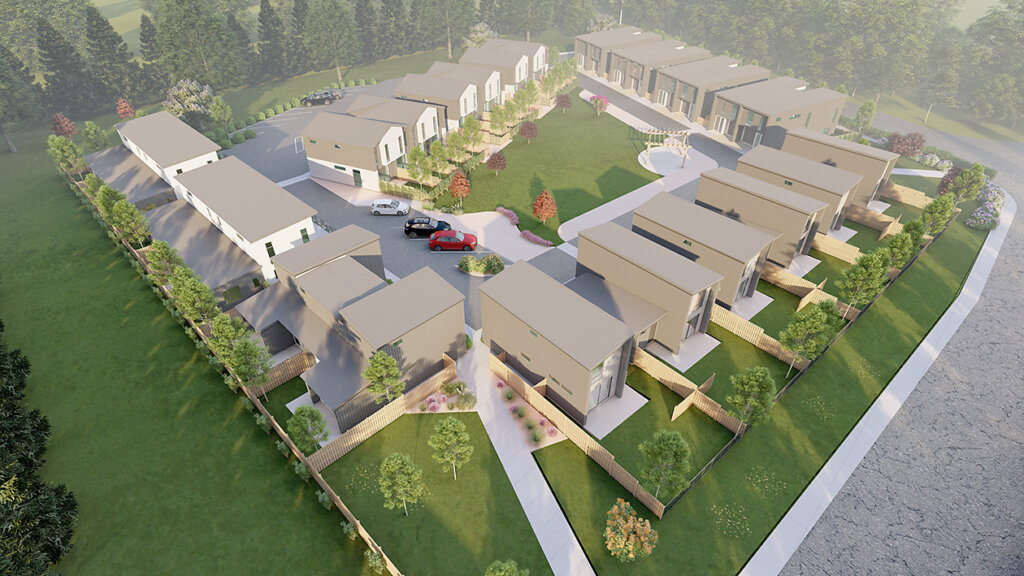Habitat for Humanity is seeking funding for an affordable housing development on the former Zion Church site on Racecourse Rd and is confident of Government help.

Habitat for Humanity Central Region chief executive Nic Greene is seeking funding for an affordable housing development in Te Awamutu.
A change in Government and a softening housing market had created “reasonable uncertainty” for the $10 million project, said Habitat for Humanity Central Region chief executive Nic Greene.
“The sell to market and the market has softened considerably and that means that any subsidy has evaporated,” Greene said.
“The progressive home ownership scheme has been fully subscribed and is unlikely to continue under a new government, and the public housing part is yet to be announced as to what the what the new investment from central government looks like. “
Waipā District Council granted resource consent last year for 40 affordable homes on the one-hectare site. Now due diligence is underway on civil works.
“We’re very confident that that will receive support from this new government,” Greene said.
“They’ve talked about supercharging the sector, enabling better outcomes for communities by being place based, so we align with all those things, but until after the budget, we don’t really know what on earth that that actually means.”
Habitat is involved with half a dozen similar projects across the Waikato.
“Our pipeline’s been pretty full, but that’s been off the back of some certainty around funding settings. We’re sitting on our hands. The whole sector has been saying we just need access to capital.”
In an ideal world, Greene said, the Government would provide certainty around funding in the Budget.
“We’ll get a get an application and to push forward with and by the end of this year we’ll have all of that in place we’ll be starting you know some actual digging in early 2025 and then it’s probably about an 18-month development time frame,” he said.
“A worst case scenario is we sit on our hands for 12 months and let the dust of the current economic climate settle a little bit and then come back to it.”
This was far from ideal, he said, as there was strong interest in the development.
There was a social cost to delay.
“The reality is that housing in New Zealand is unaffordable and that turns into a crisis when your housing costs mean that you don’t have residual money to buy the essentials of life. So, you start making decisions that are detrimental to your household because you’ve just got no money left,” Greene said.
People were choosing between seeking medical attention, paying their power bills or their mortgage, he said.
“There is such a huge demand out there for the right product that meets the community at the point of need. The market is still selling high end houses to people who can afford having a bit of free cash. Everybody else is struggling to pay their mortgage or buy a loaf of bread.”

An artist’s impression of the affordable housing development scheme planned for Racecourse Rd.








